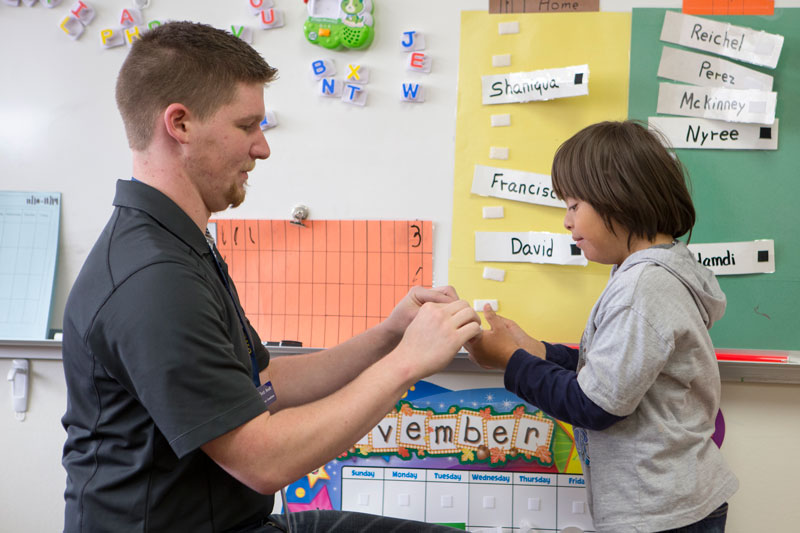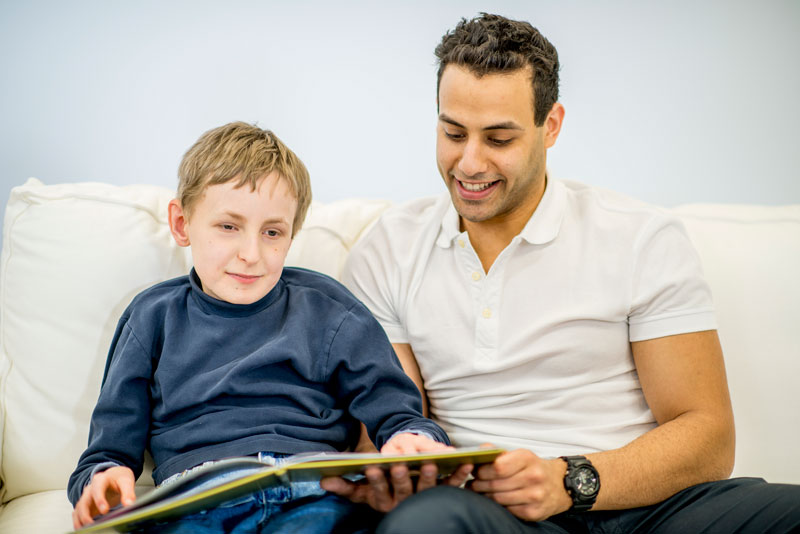Extensive Field Experiences, Flexible Learning
Offered online to meet the needs of busy professionals, the Special Education: Deaf and Hard-of-Hearing degree prepares you to work with students from early childhood through high school and post-secondary education. You’ll work extensively with students, families and teachers through more than 800 hours of supervised field experiences. You’ll also teach diverse students who use a variety of modes of communication including listening and speaking, signing and speaking and American Sign Language. The program is fully accredited by the National Council for Accreditation of Teacher Education, and approved by the Colorado Commission on Higher Education (CCHE) and the Colorado State Board of Education.
Take the next step! Explore courses, contact information and admission requirements.
Ranked First in Colorado
Designated Colorado’s primary institution for teacher education, UNC is also the top-ranked university in the state for online graduate programs in education. You’ll interact with instructors, collaborate on assignments and discuss course topics one-on-one or with the whole class--in a classroom that's accessible 24/7.
Related Special Education Programs
Your Future in Special Education
There is an urgent need, nationally and regionally, for teachers of students who are deaf or hard-of-hearing. When you graduate from our program, you’ll have the knowledge, skills and preparation to make a positive impact in the lives of students, their families and their communities.
Consider UNC's Deaf and Hard-of-Hearing program if you're:
- Dedicated to helping deaf or hard-of-hearing students succeed
- Looking for a flexible, online graduate program you can complete while continuing to work
- Interested in making a difference in the lives of others
You’ll learn:
- How to use evidence-based practices to teach students with hearing loss to communicate and read
- How to help families learn to interact with their child
- How to teach students to speak and/or use sign language
- To develop and deliver lessons in content subjects
- To work with general education teachers to include students with hearing loss in their classes
Sample courses:
- Foundations of Deaf Education
- Collaboration: Deaf/Hard of Hearing
- Auditory Skill Development: Deaf/Hard of Hearing
- Speech: Deaf/Hard of Hearing
- Language: Deaf/Hard of Hearing
- Literacy: Deaf/Hard of Hearing
- Curriculum and Instruction: Deaf/Hard of Hearing
Where can your degree take you?
With a master’s degree in our Special Education: Deaf and Hard-of-Hearing program, you’ll be prepared to teach children and youth from birth through high school. Professional options include:
- Classroom teacher in a residential school or general education setting
- Team-teaching with a general education teacher
- Itinerant teacher who travels to several different schools
- Parent-infant facilitator or home interventionist working in the family’s home
Ready for what's next? Here's what you need to know.
If there's anything else we can do, be sure to connect with us. We're only a shout away.
Still not completely sold? We understand. Here's more information on costs and funding and how to apply.




